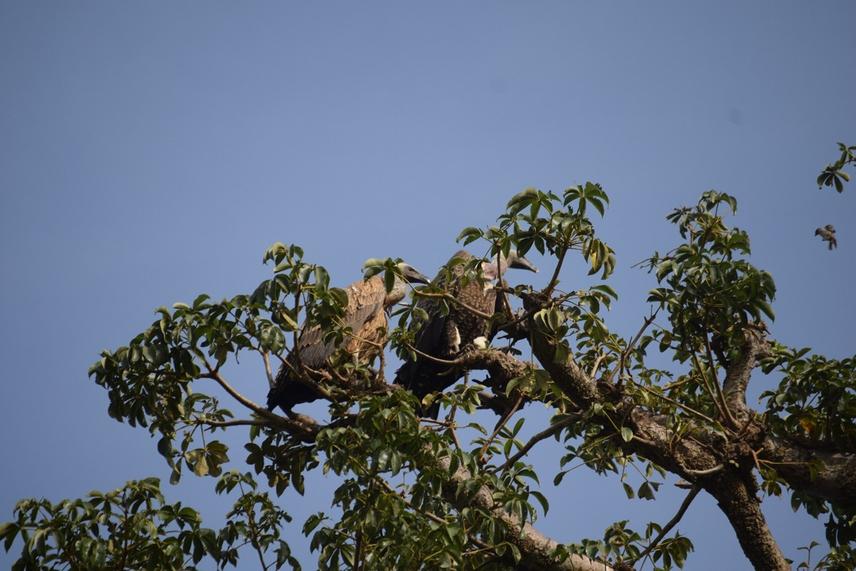Pascal Murhula Mirindi
Since 2022, we have noticed a good number of vultures use the Bandia area as their home range, specifically the Rüppell's vulture that nests around the Bandia area. Unfortunately, not all of this information is documented (Dupart, 2022). Therefore, we decided to work in this area to evaluate the distribution of Rüppell's vultures (rueppelli) nesting around and in the Bandia reserve, and also to evaluate perceptions of the local population on the state of vulture conservation in this area. To achieve these objectives, the method of direct observation by roadside counting (Bibby et al., 2000) will be used with the aid of a pair of binoculars and, if necessary, a telescope. A Wildlife Acoustic sound detector (Song Meter Mini AA) will be used to help detect by sound the very discreet species of vulture (rueppelli) which nests in large trees in the middle of sparse forests. Finally, the questionnaire survey method will be used to collect data from the local population of the Bandia forest via Kobocollect in order to assess their perceptions of the state of vulture conservation around the Bandia reserve.

Two vultures perch on the large Baobab tree, watching for prey. ©Pascal Murhula Mirindi.
All nests observed during the counts will be noted and visited, and those that are active and abandoned will be identified, along with the nesting species. Once this has been done, GPS points will be taken at the locations where the nests are found (whether active or not) in order to create raster files and draw up a map that will be proposed to the conservator to be used as vulture security zones for the sustainable conservation of these endangered species. Once the zoning is secure and well known as an area of distribution and reproduction of vultures, we will then create a group of volunteers who will be trained at regional level, especially in Bandia, to: (i) monitor the Rüppell's vulture every three months, especially during the breeding season, (ii) raise awareness about the non-poaching of vultures linked to poisoning in Bandia and the use of bird organs in traditional medicine, in general and vultures in particular, and (iii) to use social media platforms such as Facebook, Twitter, Instagram, and LinkedIn, to educate and raise awareness of the threats posed by vultures, in collaboration with the organisation Nature Conservation et Développement. This initiative will reach thousands of people.
Header: Vegetation (baobab trees) showing where the Rupelle vulture nests in Bandia. ©Jean-Marie Dupart.